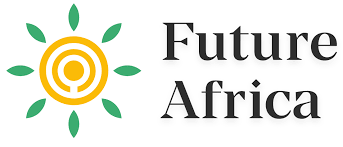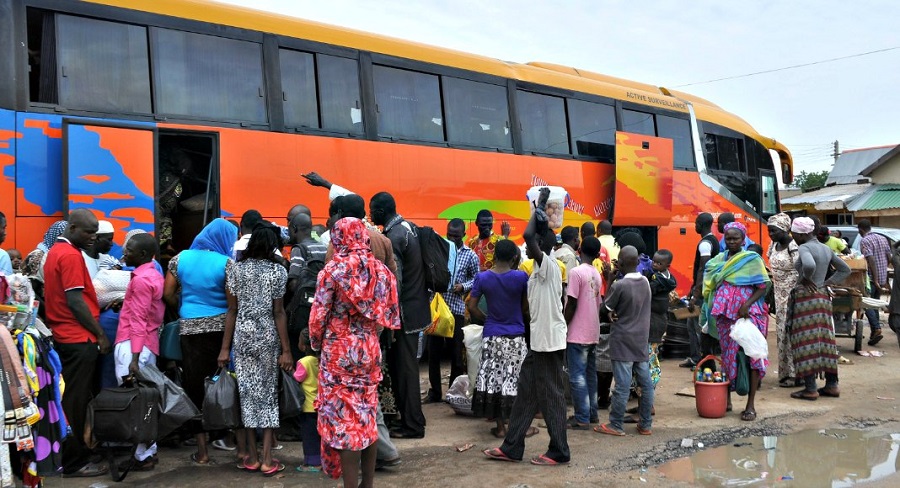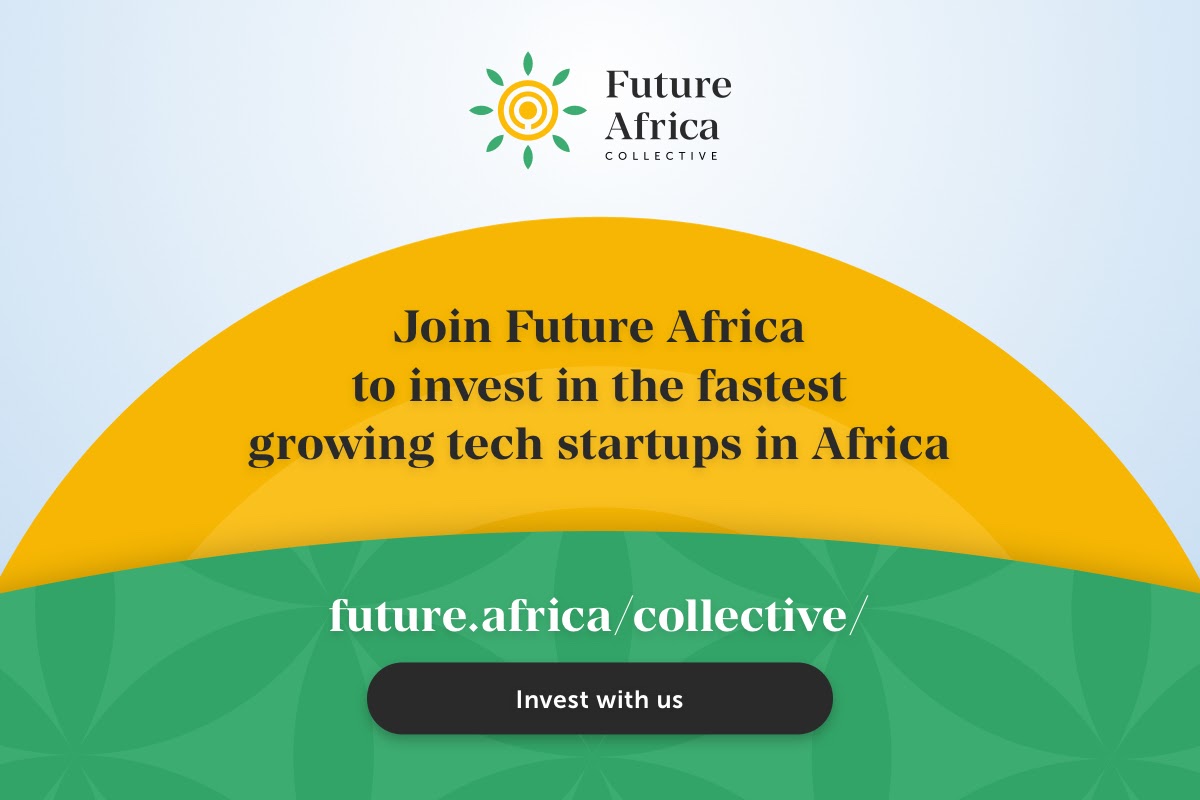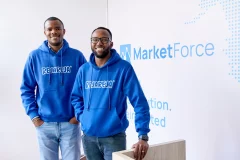
IN PARTNERSHIP WITH



Good morning ☀️ ️
What’s Nigeria’s favourite beauty brand?
No, it’s not Vaseline or Jergens (they’re not even beauty brands).
It’s Fenty Beauty. According to data gathered by Tajmeeli, Fenty by Rihanna is the most popular brand in three African countries including Nigeria, Kenya, and Ethiopia.
L’Oreal, however, is the favourite worldwide, leading in 25 countries across the globe.
In today’s edition
- From Craydel to college
- Improving travel experience for Nigerians
- Skills matching in the EAC
- Facebook is still tracking teenagers
FROM CRAYDEL TO COLLEGE

It’s an experience many of us have had. You apply to a university for an undergrad programme in law or nursing, and instead, you’re given the opportunity to study actuarial science or botany.
In Africa, the path to making higher education choices is cumbersome and fraught with misinformation. Majority of students end up studying a course they don’t like or ones they aren’t confident about, and that affects their career options upon graduation.
Why does this keep happening?
There are a few things to blame for this, including broken education systems and corrupt officials.
Another prevalent crux is that there is no central place for students to compare their options, receive unbiased guidance, and seamlessly apply online. Despite this problem, over 15 million African students enrol in higher education annually.
Many of these students either go through the trouble of applying themselves or paying an education agency to help them through the process. With these two methods, students are either faced with too much information and end up abandoning the process or misapplying; or paying agents—who are often unreliable—very ridiculous amounts of money.
Cradling a solution
Craydel, a Kenya-based edtech startup founded in March 2021, aims to change how African students access post-secondary education by creating a seamless applications processing experience through its platform.
The platform provides a digital end-to-end higher education service. Its service spans from the point of students choosing schools, programmes, and courses to the application and admission stages. The platform also provides visa support for those who choose to study abroad, all for free.
Read more: Craydel is creating more higher education options for African students.
IMPROVING TRAVEL EXPERIENCE FOR NIGERIANS

Road transportation in Nigeria is currently fraught with many significant problems that make inter-state travel unbearable for the average passenger.
From bad roads, which are costing the country about ₦1.02 trillion ($2.38 billion), to kidnapping, which has affected over 2,000 Nigerians travelling across state lines has become a horror for many.
Inter-state roadblocks
Unlike air travel where services are technology-enabled, most road transport companies in Nigeria operate via largely manual processes. Because of this, there’s a lack of orderly process to acquire bus tickets and commuters often have to wait long hours at terminals for the buses to get filled up.
This is in addition to an inconsistent ticket pricing system. The price could change overnight!
Having grown up in Ibadan and travelled around Nigeria a lot, Folarin Olulana is familiar with these problems. So familiar he set out to found T40 and Intercity, sister startups that are digitising road transport operations for providers and commuters.
The sisters’ journey
T40 helps inter-city transport companies digitise their passenger onboarding process via point-of-sale (PoS) devices. The devices help operators track and analyse sales performance, identify new and returning customers for potential loyalty bonuses, as well as monitor inflows to mitigate the risk of fraud.
Intercity, on the other hand, is the B2C aspect of the programme which allows potential travellers to access desired routes, book trips or parcel deliveries ahead of time, compare prices of available operators, and get their tickets—all online.
While both have come far, partnering with 40 logistics companies and handling over 6,000 bookings in 2021 alone, the journey—much like Nigerian roads—hasn’t always been smooth.
Michael Ajifowoke runs through the course in, With T40, Folarin Olulana is improving intercity travel experience for Nigerians.

AIn Ep. 2 of Artwork, learn how to set your rates while attracting and retaining the best clients.
👉🏾 Watch now.
This is partner content.
SKILLS MATCHING IN EAST AFRICA

Last week in Arusha, Tanzania, the East African Community (EAC) launched Skillsmatch, an all-new platform designed to link young professionals to jobs and internships.
The goal of the platform is to address youth unemployment in the EAC—about 6% in Tanzania and 17% in Kenya—and enhance digital skills throughout the region. Skillsmatch was developed in partnership with the East African Business Council (EABC), Inter-University Council of East Africa (IUCEA), the Centre of Excellence for ICT in East Africa, and GIZ, among others.
The digital skills divide
The need for digital skills in sub-Saharan Africa is at an all-time high.
In a survey conducted by the IFC, responses indicated that around half of jobs in sub-Saharan Africa require some digital skills.
The demand for digital skills in the region is also expected to grow faster than any other global market. And, according to the data, 80% of youth in East Africa are unemployed. Digital skills training and job matching present a new opportunity to bridge the region’s unemployment gap.

Join the Future Africa Collective – an exclusive community of investors who invest in startups building the future. With a $300 quarterly fee, you get access to invest a minimum of $2,500 in up to 5 high-growth African startups.
This is partner content.
FACEBOOK IS STILL TRACKING TEENAGERS

In July, Facebook—as it was then known—announced that it would be changing the way it allowed advertisers target under-18s.
This, of course, was at the height of criticisms on how harmful Facebook and Instagram are to teens and youths, especially with targeted advertising.
Pre-July, advertisers could target teens based on their interests, their activities on the app, and even on other websites. With the announcement in July, Facebook laid down new policies that would only allow targeting based on age, location, and gender.
What’s good for Facebook may not be good enough for Meta
According to new research by Fairplay, Global Action Plan and Reset Australia, Facebook’s new policies in July were misleading.
The research claims that Facebook hasn’t abandoned ad targeting for teens, allowing its AI algorithms to track children’s activities so it can use the data to determine which ads they see in order to maximize engagement and boost ad revenues.
In other words, while Facebook isn’t tracking activities per se, it has replaced targeted advertisement with ads optimisation selected by its AI.
A letter to Meta
Facebook has denied the claims made by the research, but not everyone is satisfied.
In an open letter made to the company, an international coalition of public health and child development groups, human rights organisations and privacy campaigners are calling for the company to reveal just how much data it’s scouring from teens.
Zooming out: A name doesn’t equal a new slate and Facebook Meta is learning that. This new research comes right on the heels of the Facebook Papers leaked by whistleblower Frances Haugen, which shows just how much Facebook knows about its adverse effects on teens.

Save 50% on transaction costs with instant, linked-account payments. Ideal for wallet funding, loan repayments, collections, and e-commerce checkouts.
Learn more here.
This is partner content.
OPPORTUNITIES
- The BeFree National Prize 2022 is open to all Namibians who want a chance to get an all-expense-paid trip to this year’s One Young World in Tokyo, Japan. Five awards will be given to young Namibians championing social, cultural, technological and entrepreneurial innovation. Find out more and apply here.
- The 2022 Great Minds Internship is now open to students enrolled in master’s programmes in Central Europe, Africa, and the Middle East. The 3- to 6-month internship will provide candidates with the opportunity to work with world-class scientists in IT research. Successful candidates will also be fully funded for residencies in Switzerland, Kenya, or South Africa. Find out more here.
What else we’re reading
- Review: Canon’s M50 Mark II offers exciting but modest upgrades.
- Substack now has 1 million users and it’s top ten writers are making about $20 million in revenue annually.
- Nigerian startup, TeamApt, is in its third round of funding and it’s targeting unicorn status.
























